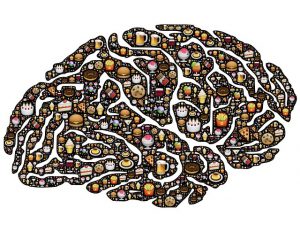In the last couple of days a couple of articles roundly condemning the ‘clean eating’ movement have caught my eye. I attach them here for background. I also got myself involved in a debate on the same subject in a practitioner group. It was interesting to hear how many diverse views you can get from what is, supposedly, one profession.
https://tonic.vice.com/en_us/article/zmvwb4/eating-clean-wont-make-you-any-healthier
http://www.dailymail.co.uk/health/article-4709100/Horrifying-toll-clean-eating-fad-taking-young-women.html#comments
The first thing this made me realise was that the wellness industry is not, in fact, one profession. It is, perhaps more than many other professions, subject to the agendas and social and political backgrounds of its members. For example, in the debate yesterday, some people (I was in this camp) pointed out that many clients really can’t afford to eat organic, and even if they could, they wouldn’t do so because they would perceive it as being too middle-class. Others claimed that if families can afford to buy junk food, they can afford organic. It’s simply a matter of priorities.
Clean Eating?
I’m not going to get into the organic or GMO debate here, because I’ve not done enough research to comment. My position at the moment is that seeking out organic and non-GMO is only beneficial from an environmental perspective; the health benefits are dubious at best. However, I’m willing to have my mind changed. My point is that what we eat is as much about social and emotional perspective as it is about nutrition, possibly more so.
The Daily Mail article, is, as you would expect, sensationalist. It lays the blame for the prevalence of eating disorders squarely at the feet of the clean eating movement.
I’m no fan of the ‘clean eating’ movement (see this article for my views), but I only agree with the author up to a point. Obsessing about food has many dangers. However, most people who promote healthy eating would be absolutely horrified if readers became paranoid about food to the point of emaciation. Eating disorders are mental illnesses with many causal factors. To blame them on one movement, whose intentions are reasonable even if its language isn’t always prudent, is over-simplistic and wrong.
Why irrational behaviours?
So why does obsessive eating behaviour happen? Maybe because the mind often doesn’t know the difference between rational beliefs and irrational ones, and hooks onto subjective feelings to bolster up the narrative it has created for itself, rather than considering evidence first. For instance, yesterday one lady claimed that her body immediately knows the difference and reacts badly when she eats a non-organic apple as opposed to an organic one. I can think of no physiological mechanism that would make this happen, and I’ll bet that if she didn’t know which type of apple she was eating, she wouldn’t get the reaction. I am left with the conclusion that her mind created the reaction. That’s not to say it isn’t real; the mind can and does produce real physical symptoms – it’s just that it’s not grounded in objective evidence.
That’s the problem with so much of today’s advice; it’s based purely on what people have felt and experienced. That’s understandable; humans are primarily creatures who make meaning, and we create that meaning through our own experiences. However, if our experiences are not underpinned by quality evidence, they are merely straw houses. I can ‘believe’ all I want that I can fly, I can read “true” stories about people who’ve done it, and I can feel it in the depths of my soul, but it’s still not going to happen, because ‘ye cannae change the laws of physics, Captain’.
What can be done?

Eating disorders are real and dangerous. Can we help young people master healthier ways of thinking?
How can we help young people who may be pressured into unhealthy habits? Like the very slim girls in my class who were told by their ballet teacher that they were too fat? Which, by the way, seems much more likely to promote disordered eating than encouraging them to eat more veggies. I personally think it would be very helpful if we were to teach our children (and ourselves) to ask ourselves the following questions about something we have read, or are told:
-
Who is the person giving this opinion or advice, and how are they qualified do so?
-
Is there a plausible and realistic mechanism by which this advice could work or be true, and is the advice giver interested in showing me how to find it?
-
Has this been shown consistently to benefit people similar to me?
-
What are the downsides of this position, and what are the counter-arguments? Does the author make these clear, or are they ‘cherry-picking’? Do the potential benefits outweigh the negatives?
-
Is this advice congruent with my core values as opposed to my current knee-jerk reaction?


